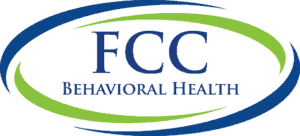
Suicide Prevention Specialist I
FCC Behavioral Health
- Poplar Bluff, MO
- Permanent
- Full-time
- Associate’s degree in counseling, Psychology, Social Work, or related field OR
- High School diploma or equivalent AND at least two years of experience in psychiatric, substance use treatment, peer support, or developmental disabilities
- Must have competency-based training on suicide prevention, interventions, and postvention as well as experience and knowledge associated with the gun-owning community
- Assists with developing and maintaining a coalition of community partners who share the same vision. The coalition would include traditional community partners as well as involving faith-based organizations and local businesses.
- Performs an annual comprehensive environmental scan.
- Ensures suicide prevention efforts align with community perspectives, culture, readiness, strengths, and needs.
- Identifies gaps in resources and services and promotes capacity building to address these issues.
- Provides outreach to workplaces to promote the objectives of the program.
- Assists workplaces in finding ways to identify suicidal behavior, strengthen social support, promote the development of coping skills, and change policies and norms to encourage help-seeking behaviors.
- Provides education and/or training for workplaces based on their needs/interests. Develop relationships with key community organizations so that those natural gatekeepers can identify people at risk for suicide and route them directly into services. Examples of training include: Question Persuade, Refer, Conversations for Suicide Safer Homes, Vital Cog, Counseling on Access to Lethal Means; suicide risk factors, protective factors, concepts and facts; training on lethal means reduction, etc.
- Develops linkages with clinical systems, health care providers, and programs in the community to ensure seamless and continuous care for individuals.
- Communicates effectively with internal and external audiences. Provides evidence-informed communication, including safe messaging guidelines.
- When appropriate and in alignment with organizational guidelines, share personal lived experience with suicidal ideation and/or attempt to foster connection, reduce stigma, and support others in their recovery journey.
- Adherence to all applicable evidence-based practice models.
- Orally communicate information effectively and accurately.
- Assure program operates within the constraints of the agency’s certification (CARF, DMH) standards and strategic plan related to clinical care.
- Abide by program and agency policies and procedures.
- Other job duties and special projects as assigned.